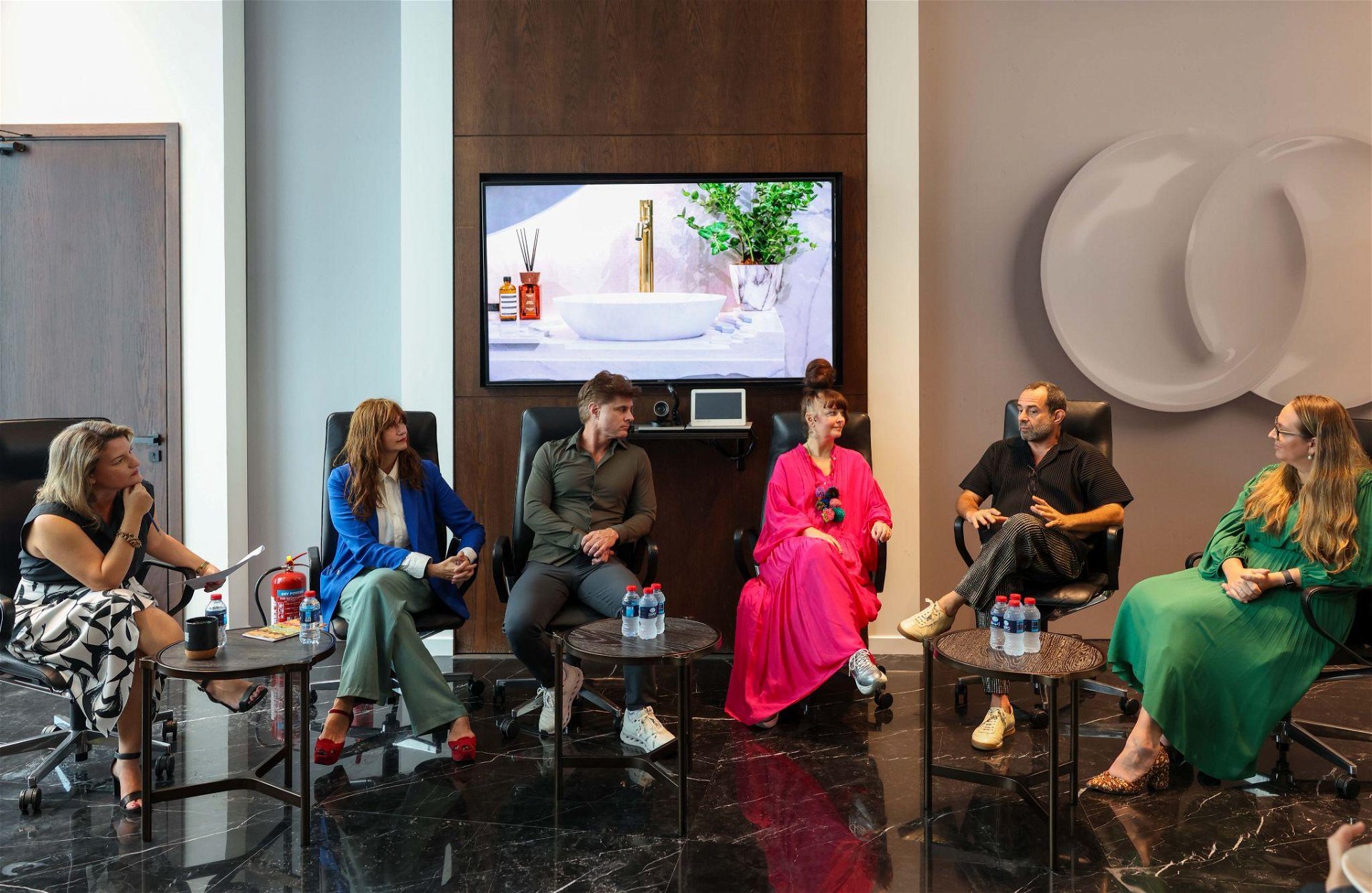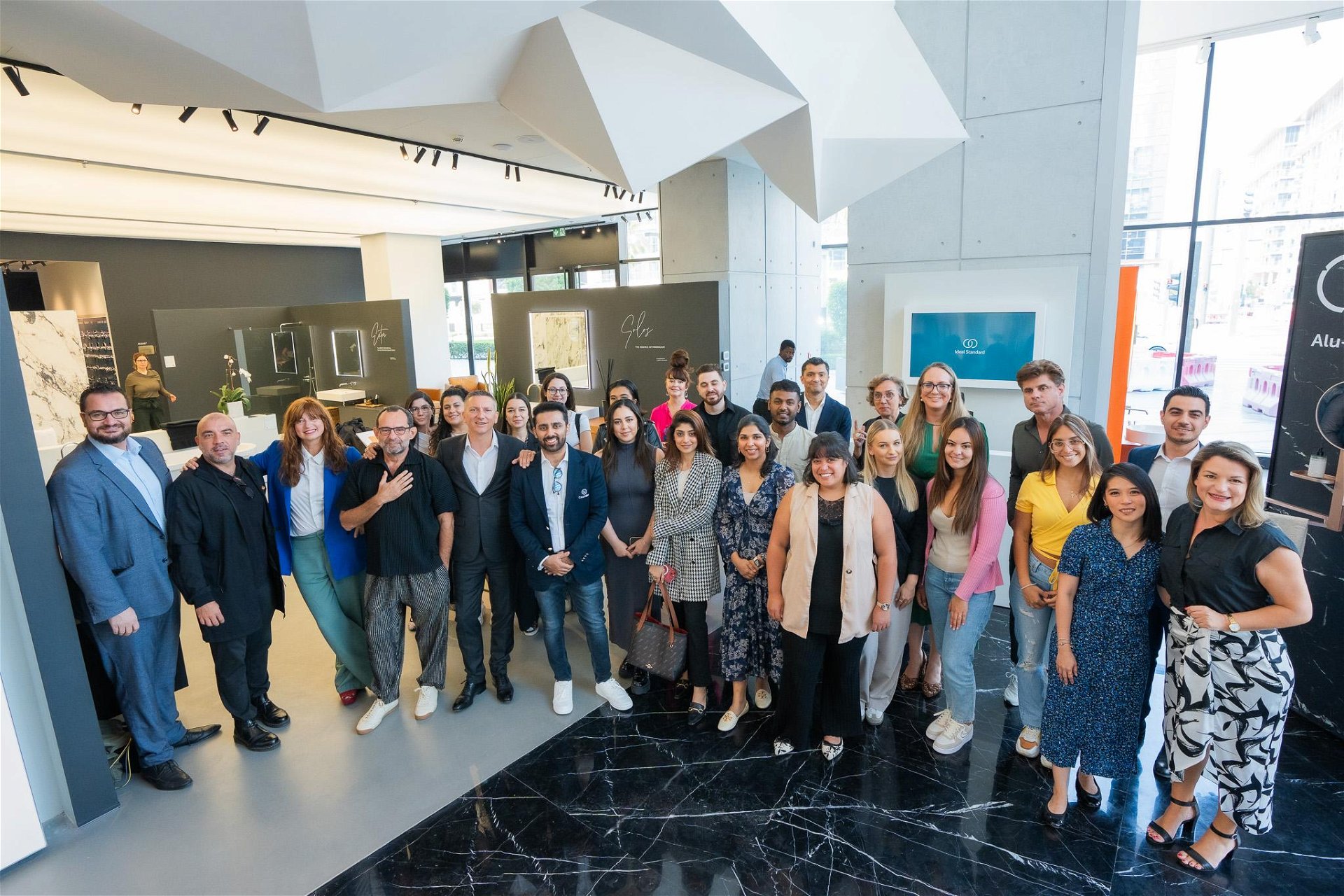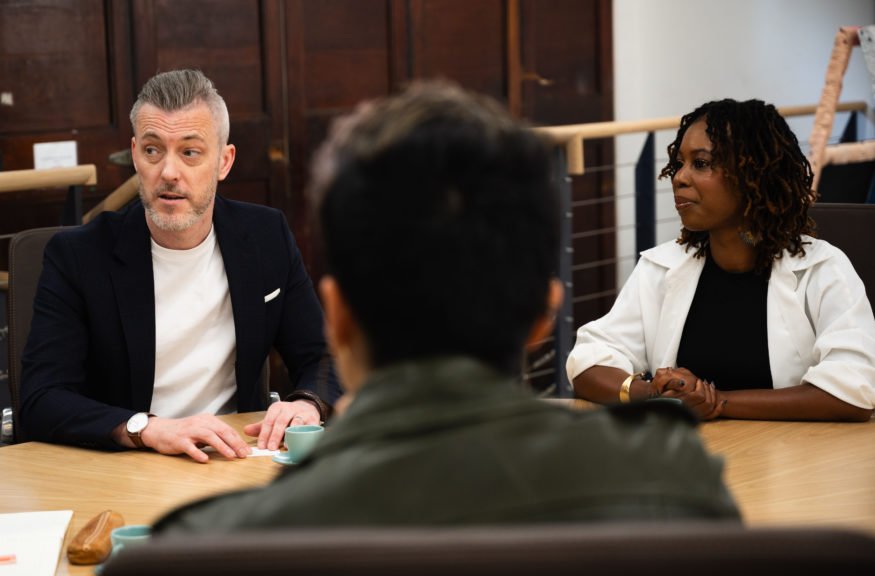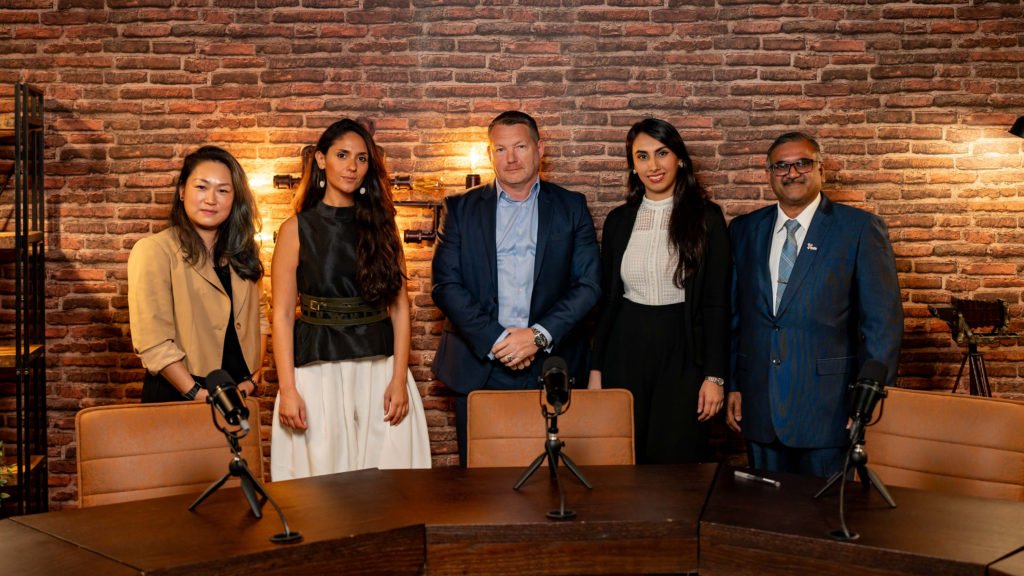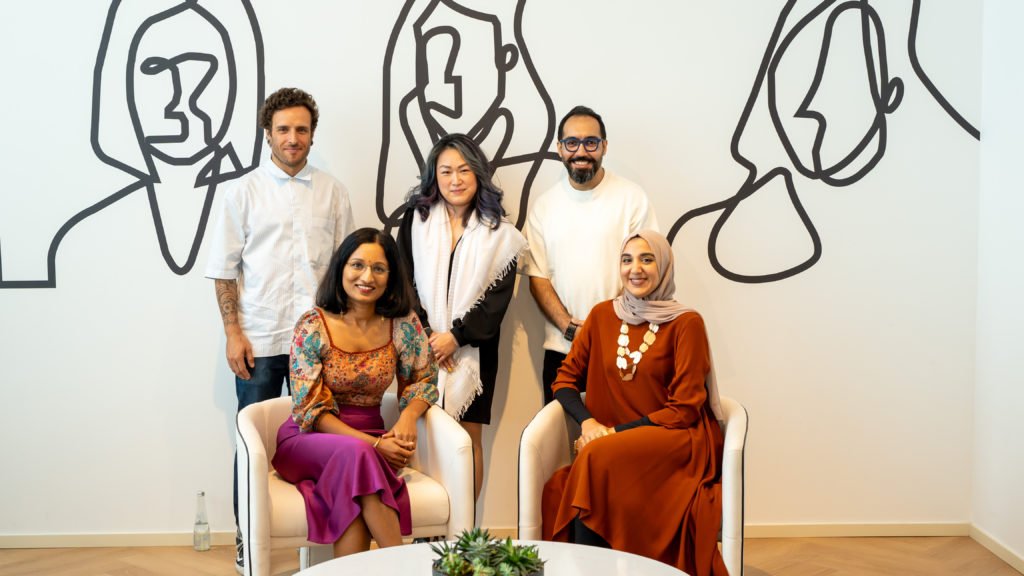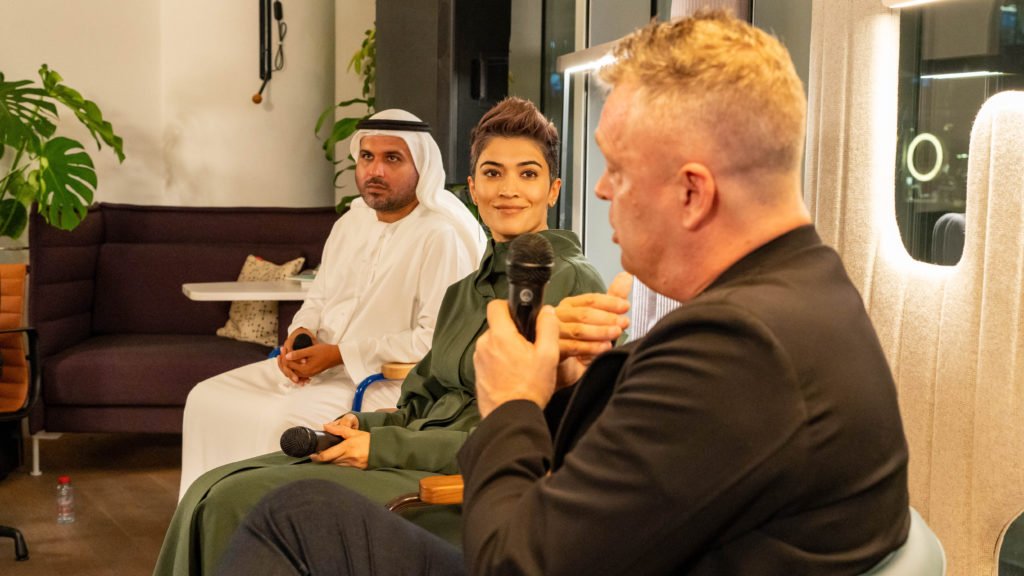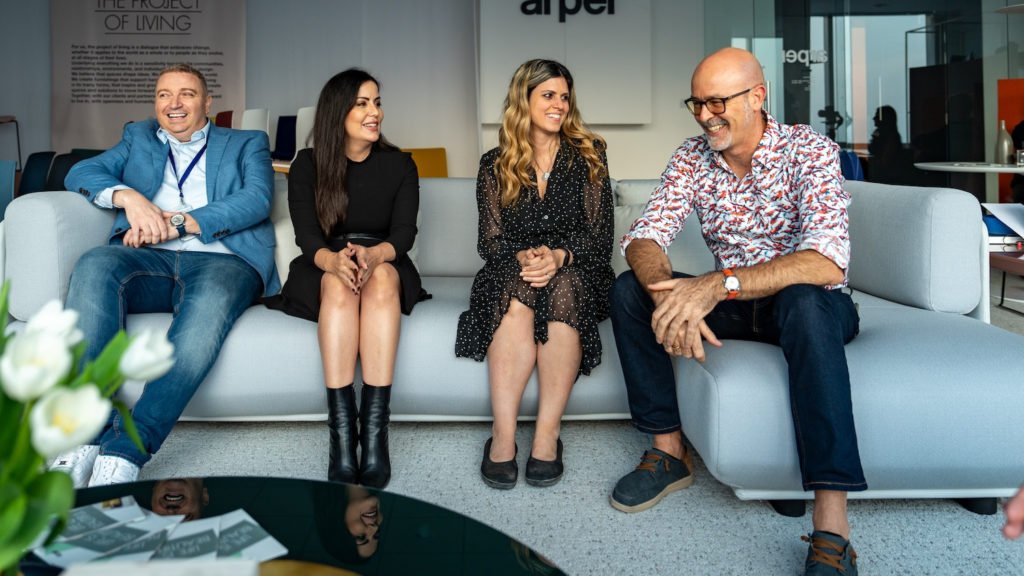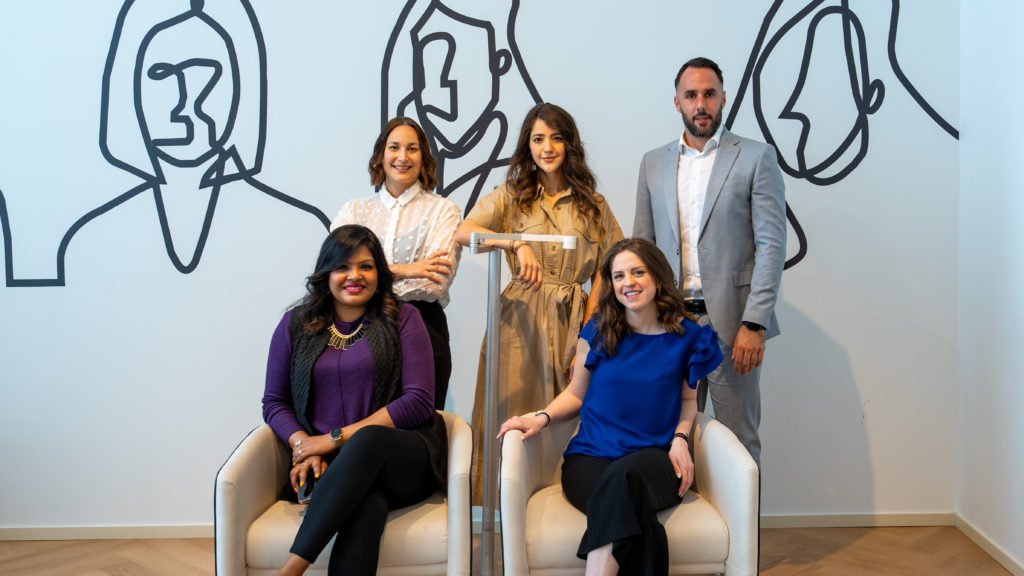The “Talking Walls: Reimagining the Bathroom Experience” round table, hosted by Casa Milano in media partnership with Intelier and Love That Design, brought together industry experts, offering a glimpse into the future of bathroom design.
The panel, moderated by Marina Mrdjen, founder of Intelier, and hosted at the Ideal Standard Specification Center in City Walk, Dubai, featured Roberto Palomba, Founder of Palomba Serafini Associati and Chief Design Officer at Ideal Standard; Indira Arnautovic, Interior Designer at GA Group; Marisa Santamaría, Founder & Director of Global Innovation Trends Unit and professor at Poli.design; Mario Romano, Founder of M|R Walls; and Laura Bielecki, Associate Director of Interiors at Nakheel.
Together, they delved into topics ranging from sustainable hospitality design to the integration of AI in personal spaces.
Sustainable Design in Hospitality
The discussion kicked off with an in-depth look at sustainability in bathroom design within the hospitality industry. Roberto Palomba, founder of Palomba Serafini Associati, and Indira Arnautovic of GA Group emphasised the significance of eco-friendly materials and water-efficient technologies.
Palomba said: “It’s one thing to put on a green coat for show, quite another to truly embody sustainable practices. What really fascinates me is the challenge of communicating the substantial efforts of a brand like Ideal Standard. We’re deeply invested in reducing carbon emissions, developing new materials, and fostering environmentally friendly production processes. My focus is on distilling this complex information into simple, comprehensible sentences. It’s about helping people appreciate the tangible work we’re doing. We don’t want to be overwhelmed with processes; instead, we aim to highlight the results and the conscious effort behind them. What our customers see and buy is a testament to our commitment to the planet’s future.”
They both further highlighted how luxury and guest experience are increasingly intertwined with sustainable design practices.
“Clearly, some aspects of sustainable design will need to be enforced, perhaps through legislation. Operators play a crucial role and must start incorporating sustainability into their brand standards, something many have already begun. As designers, our responsibility is to advocate for these practices. However, there’s still much to learn, and we must be more aware and proactive in these sustainability conversations,” added Arnautovic.
Residential Bathrooms as Personal Sanctuaries
Marisa Santamaría, founder of the Global Innovation Trends Unit, and Laura Bielecki, from Nakheel, delved into the evolution of residential bathroom design.
“The bathroom is a kind of mystic space where one finds oneself. Every morning, as you look into the mirror, it’s more than just a functional area. Regardless of its size, it’s essential to feel an atmosphere that fosters a meeting with oneself, catering to personal necessities. It should be a place of relaxation and reflection, a sanctuary where you can genuinely connect with yourself,” Santamaría explained.
They both agreed that modern bathrooms have transformed into wellness retreats, featuring elements like therapeutic lighting and spa-like amenities, catering to a diverse range of user needs.
Bielecki added: “In apartment design, as you move from one-bedroom to larger units, the emphasis on the master bathroom grows. It becomes a key selling point, alongside the kitchen. A well-designed bathroom stands out, providing ample storage space, and catering to practical needs like makeup and perfume storage, towel hanging, and bathrobe placement. Functionality is key, including safety considerations like non-slip floors and proper drainage. These elements are essential for a bathroom that’s not only functional but also a highlight of the home.”
The Future of AI in Bathroom Design
Mario Romano, founder of M|R Walls, discussed the exciting potential of AI in bathroom design. He described how AI can aid in realising visionary concepts, enhancing user experience through features like voice-activated showers and predictive lighting.
“Visionary creativity often starts with a concept in the mind, seeking a tangible form. AI serves as a powerful tool in this process, rapidly transforming visions into reality. What’s truly remarkable is the use of Corian in these designs. Corian’s versatility is unmatched – it’s polymorphous, capable of taking complex shapes, and can be curved or even lit from within.”
He continued: “Our aim goes beyond mere design; we strive to create enduring, lived-in spaces. The way we utilise Corian, especially in crafting textured surfaces that are illuminated and curved, brings AI-generated visions to life. It’s thrilling to work with a material that so beautifully bridges the gap between digital innovation and real-world applications.”
The conversation also touched upon the ethical considerations and the role of AI in creating accessible, tailored experiences. “With AI, we can create beautiful images, and we can put them on billboards along Sheikh Zayed Road. It can be compelling for sales, but the crucial question is if we can build it. And that’s what makes a good designer different from a great designer. A good designer can produce something beautiful on paper. A great designer, however, brings that vision to life, creating something that is just as beautiful in reality as it is in 3D renderings,” Bielecki concluded.
Ultimately, the round table concluded that aesthetics, functionality, and sustainability are crucial to the future of bathroom design.
“As industry experts, such as Roberto Palomba, continue to innovate, they pave the way for a new era of bathroom design centred around personal wellness, the environment, and technology integration,” says Marina Mrdjen, founder of Intelier and moderator of the panel.

